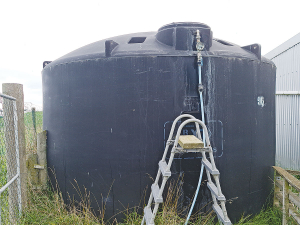Options assessed for Clutha's rural drinking water schemes
An assessment of Clutha District’s rural water supplies is currently underway.
 The Rural Supplies Technical Working Group has made 30 recommendations to the Department of Internal Affairs.
The Rural Supplies Technical Working Group has made 30 recommendations to the Department of Internal Affairs.
The Rural Supplies Technical Working Group (RSTWG) has made 30 recommendations in a recent report to Department of Internal Affairs (DIA), including that the country's 100 or so council-owned rural water supply schemes be transferred to the four new co-governed water entities.
It adds that tens of thousands of privately-owned rural water supply schemes are not included in Three Waters reforms.
RSTWG chair and Clutha District Mayor Bryan Cadogan says rural drinking water schemes are critical to the health and livelihood of rural communities, and each scheme is unique.
“We recognise that rural drinking water schemes often provide water for farming as well as for people to drink.
There are distinct differences between rural and urban water – and it’s not one size fits all.”
Cadogan claims his group has listened carefully to the concerns of rural communities.
“The RSTWG agrees that, in general, council-owned rural drinking water schemes should transfer to the new water service entities,” he says.
“But we also recommend that there should be a pathway for some council-owned rural supplies to revert to ownership by their users. This would apply to schemes that are critical to farming and whose users have the capability and resources to operate them without support from councils or water services entities.”
Meanwhile, in terms of the privately-owned rural drinking water schemes, which are not captured by reform and so do not shift to water service entities, Cadogan says for most it will be several years before they need to register as a supplier with drinking water regulator Taumata Arowai and “demonstrate compliance with it requirements to provide safe drinking water”.
Fonterra’s impending exit from the Australian dairy industry is a major event but the story doesn’t change too much for farmers.
Expect greater collaboration between Massey University’s school of Agriculture and Environment and Ireland’s leading agriculture university, the University College of Dublin (UCD), in the future.
A partnership between Torere Macadamias Ltd and the Riddet Institute aims to unlock value from macadamia nuts while growing the next generation of Māori agribusiness researchers.
A new partnership between Dairy Women’s Network (DWN) and NZAgbiz aims to make evidence-based calf rearing practices accessible to all farm teams.
Despite some trying circumstances recently, the cherry season looks set to emerge on top of things.
Changed logos on shirts otherwise it will be business as usual when Fonterra’s consumer and related businesses are expected to change hands next month.